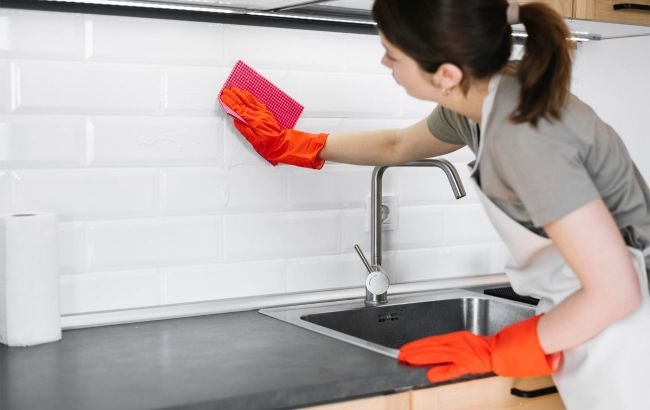9 things you should not clean with vinegar
 What not to clean with vinegar (photo: Freepik)
What not to clean with vinegar (photo: Freepik)
Distilled white vinegar can do it all - from whitening laundry to disinfecting the bathroom. However, despite being a natural product and undeniably versatile, cleaning with vinegar can damage certain surfaces and materials due to its high acetic acid content.
Martha Stewart website discusses which household items should not be cleaned with vinegar.
Natural stone
If your countertop or shower cabin is made of natural stone such as marble, granite, limestone, or travertine, you can damage them during cleaning with vinegar.
White vinegar, containing acetic acid, can etch and damage these surfaces due to its acidic nature.
Additionally, using vinegar on natural stone can cause dullness, etching, or loss of shine on the stone surface.
Damaged tile grout
Avoid using vinegar on damaged tile grout as it may further damage it due to the acidity in the liquid.
However, vinegar can be used to clean sealed grout lines effectively - it's quite efficient way to remove stains.
Before applying vinegar to entire grout lines, though, test the solution on a small area to ensure it doesn't cause damage or alter the color.
Unfinished wood
Unfinished wood is more porous than finished wood, which means that white vinegar can penetrate into the wood fibers and cause deformation or create a persistent odor, according to experts.
White vinegar can also alter the natural appearance of wood and make it blotchy.
Cast iron
Just as it's not recommended to cook highly acidic foods in cast iron cookware, it's also advised against cleaning this type of cookware with acidic products like vinegar.
Experts note that cast iron pans often have a layer of polymerized oil that provides a natural non-stick surface and protects the pan from rust.
Vinegar is acidic and can potentially damage this layer, leading to loss of the pan's non-stick properties and even rusting.
Electronics
Using vinegar to clean electronics is not advisable for several reasons. Firstly, electronics are very sensitive to moisture. Applying white vinegar directly onto electronic devices can introduce moisture where it shouldn't be.
This can lead to damage to internal components or cause short circuits. Additionally, vinegar can cause corrosion or damage certain electronic contacts, while also potentially altering their color.
Rubber
It's strongly advised against using vinegar on rubber surfaces. Similar to its effects on natural stone surfaces and damaged tile grout, acidic vinegar can degrade the material.
Instead of vinegar, it's recommended to clean rubber using a mixture of mild soap and water.
Pet items
While white vinegar is often used to neutralize odors and disinfect, it can also leave behind a scent that some pets may be sensitive to.
The lingering vinegar odor may deter them from using designated areas or items, as the scent might be unpleasant to them.
Waxed furniture
It is not recommended to use white vinegar on waxed furniture, as it can cause the surface to become dull. Additionally, the acid content in white vinegar can lead to the deterioration and dissolution of the wax.
Anything together with chlorine bleach
Never use vinegar to clean items with chlorine bleach. Mixing chlorine bleach (sodium hypochlorite) with vinegar (acetic acid) is not recommended at all due to the potential chemical reaction.
This can easily lead to the release of harmful vapors - known as chlorine gas - which can cause various health problems if inhaled.
By the way, we've previously discussed things you shouldn't wash with soap.
Additionally, we've written about why you should never clean with baking soda.

